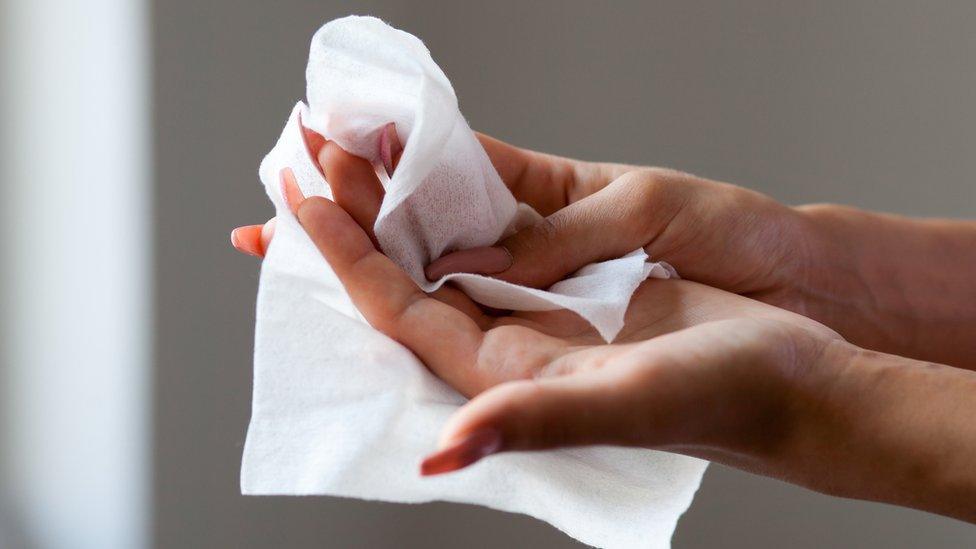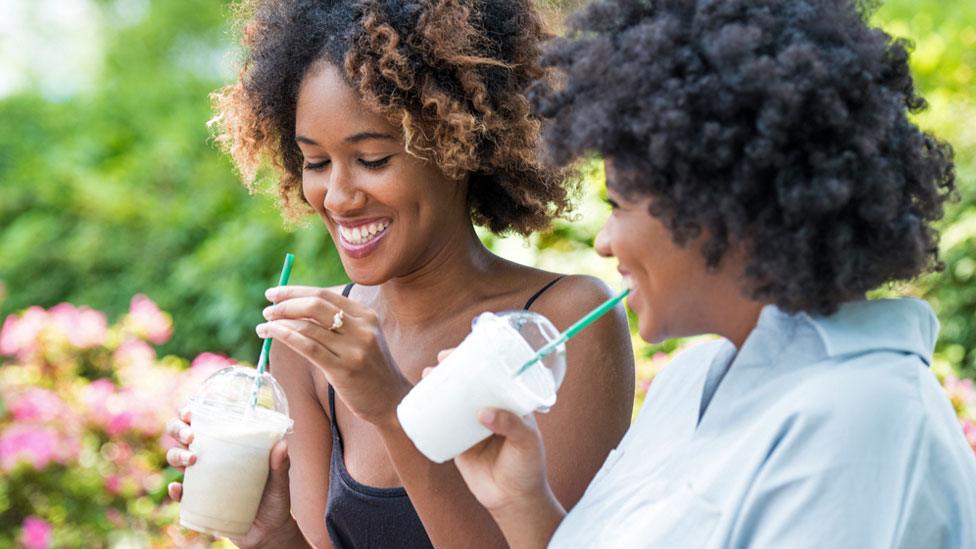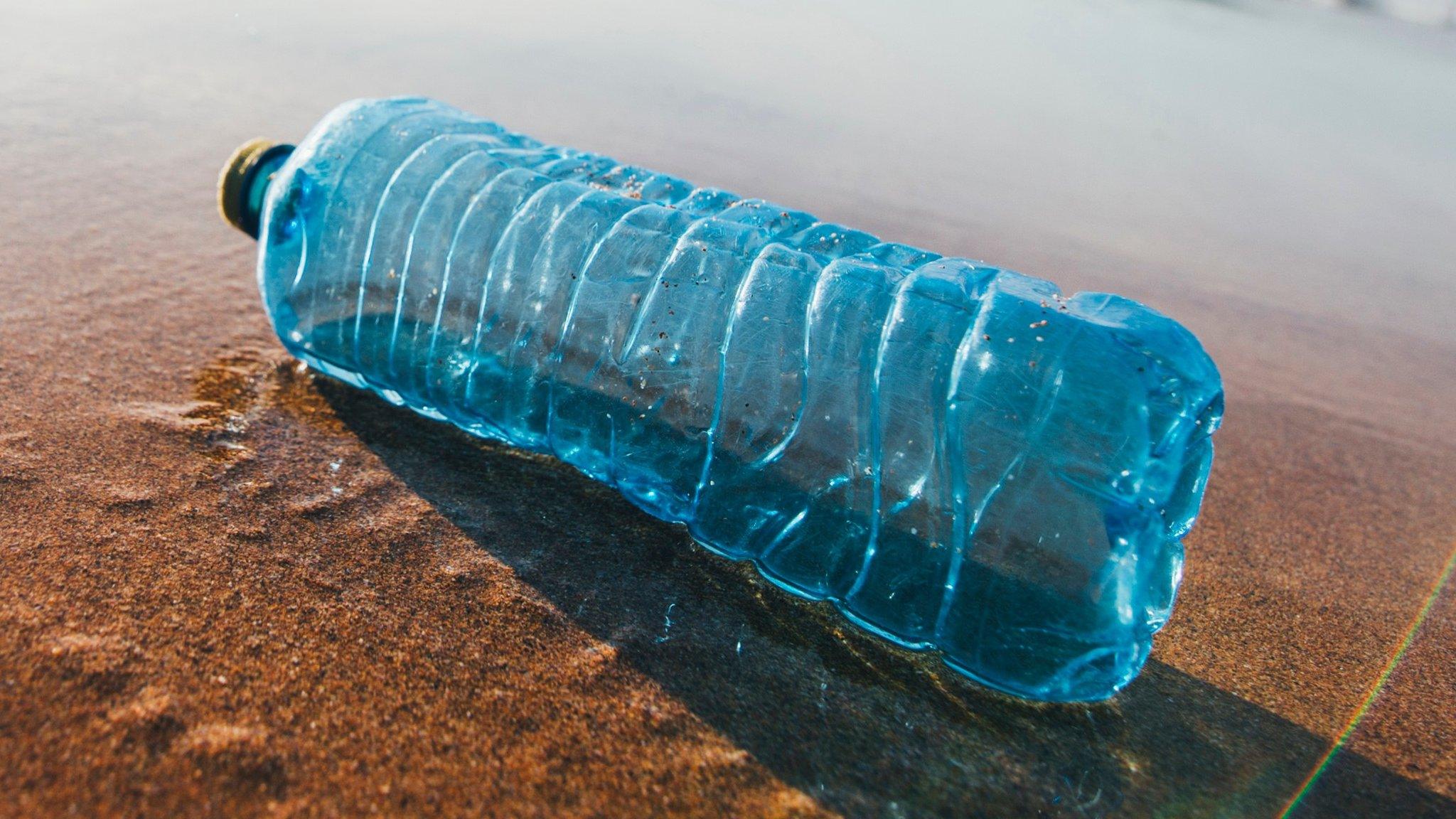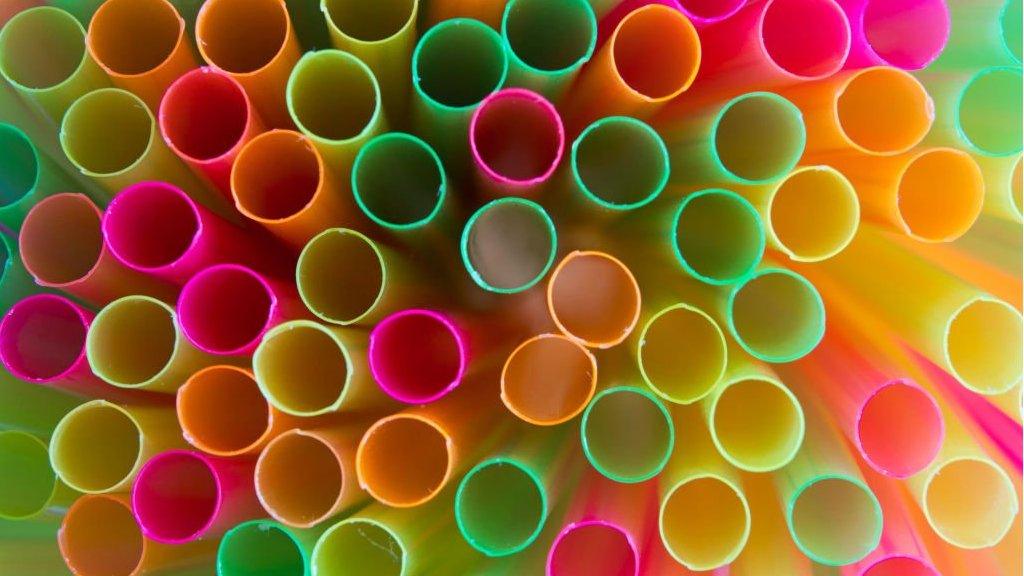Plastic waste: What are the alternatives?
- Published
Five ways to break up with plastic
Wet wipes have been added to the list of items being targeted by government plans to eliminate plastic waste.
Plastic straws and cotton buds were already on a list of items which could be banned in England.
It comes after the prime minister pledged in January to eradicate all "avoidable plastic waste" by 2042.
Some businesses and cafes have started stocking appropriate replacements for plastic and 60 music festivals, including Bestival in Dorset and Boomtown in Hampshire, have banned plastic straws, so what are the alternatives?
'Personal preference'
Paper, card and steel are all alternative materials that can be used to replace plastic straws.
Paper and card will not seem much different to plastic in terms of texture but some people have raised questions about the use of steel straws.
Julian Kirby, Friends of the Earth's waste expert, has tried all the different materials and says "it's a personal preference".
"[Steel] is comfortable for a room-temperature drink - I was drinking a smoothie and it did feel very cold, so I think if you've got sensitive teeth or sensitive gums, you might not like that."
Plastic pollution is killing animals in the Arctic
He welcomes calls for a ban and regards straws are the most unnecessary of plastic products.
"We should always ask ourselves - do we actually need this thing? That applies to straws more than anything else.
"They're liberally dispersed, they're not necessary for most people - the drink would be just as good without a straw…. if they are so necessary, why not reuse them?"
Mr Kirby points out that for people with certain disabilities, using a straw to eat or drink with is necessary.
"[The government] does say there will be medical exemptions. People who need straws to eat or to drink, they will still be able to use plastic straws."
He is optimistic that many more alternatives will come: "We've seen again and again that when you ban something - for good reasons - innovations create all sorts of alternatives."
Compostable buds
Blogger Rachael Stilgoe, who runs the lifestyle blog Be a Shade Greener, external, has been using cotton buds with card stems for the past two years.
"I've had no problem with them at all in terms of the quality of the product," she says.
Ms Stilgoe has been using ones with stems made of stiff paper, so they can be composted.
"They're available widely online and in supermarkets, and are easy to get hold of."
'Clear alternatives'
Dr Abigail Entwistle, director of conservation science at Fauna & Flora International, says "clear alternatives exist".
"Cotton buds are a particular menace on beaches around the world, and are consistently one of the most regularly reported items on UK beaches" she adds.
She welcomed the government's "positive leadership" on reducing plastic, saying that it sends "a very clear message that nonsensical use of plastic, as a default material, needs to stop.
"We encourage everyone to think carefully about their choices in using plastic - remember you can still just say no to that unnecessary plastic item!"
Washable cloths
Wet wipes contain non-biodegradable plastic.
They make up around 93% of sewer blockages in the UK and are a key component of the giant obstacles known as fatbergs, according to Water UK.
Natalie Fee, founder of City to Sea, which campaigns against marine pollution, says: "There are alternatives. You can carry around re-usable, washable cloths and washable baby wipes.
"It is quite a leap for people to think about doing that, but it is possible. There are thousands of people who do it already."
Ms Fee also suggests more can be done to deter people from buying plastic wipes.
"We can look at changing the labelling like we have with cigarettes," she says.
"If we had images of marine animals dying of plastic pollution on the front of baby wipes, that would certainly make people stop and think twice about flushing them down the toilet."
- Published8 May 2018

- Published19 April 2018

- Published17 March 2020

- Published22 May 2019
